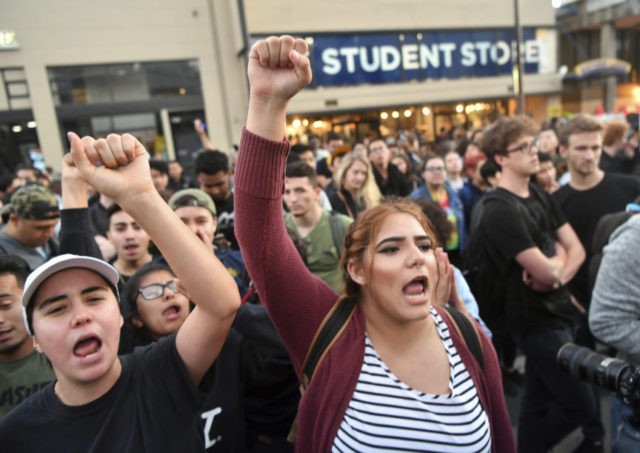Conservative political commentator Andrew Sullivan argued last week in a column that campus politics have gone mainstream.
In a column for New York Magazine, Andrew Sullivan explained how campus politics have spread to other areas of American life. He argued that universities have abandoned the traditional principles of education in favor of an “identity-based ‘social justice'” focused “movement.”
The reason I don’t agree with this is because I believe ideas matter. When elite universities shift their entire worldview away from liberal education as we have long known it toward the imperatives of an identity-based “social justice” movement, the broader culture is in danger of drifting away from liberal democracy as well. If elites believe that the core truth of our society is a system of interlocking and oppressive power structures based around immutable characteristics like race or sex or sexual orientation, then sooner rather than later, this will be reflected in our culture at large. What matters most of all in these colleges — your membership in a group that is embedded in a hierarchy of oppression — will soon enough be what matters in the society as a whole.
Sullivan went on to lament the state of robust debate in American society. Sullivan suggested that the pressure to stick to the progressive orthodox on campus had leaked out into American culture. “One of them is a robust public debate, free from intimidation. Liberals welcome dissent because it’s our surest way to avoid error,” he wrote. “Cultural Marxists fear dissent because they believe it can do harm to others’ feelings and help sustain existing identity-based power structures. Yes, this is not about the First Amendment. The government is not preventing anyone from speaking. But it is about the spirit of the First Amendment.”
Sullivan used a recent SNL sketch as an example of the new reluctance to engage in a debate about controversial issues. The sketch was about a group of people at a restaurant who refused to comment on the recent Aziz Ansari debacle.
If voicing an “incorrect” opinion can end your career, or mark you for instant social ostracism, you tend to keep quiet. This silence on any controversial social issue is endemic on college campuses, but it’s now everywhere. Think of the wonderful SNL sketch recently, when three couples at a restaurant stumble onto the subject of Aziz Ansari. No one feels capable of saying anything in public. In the #MeToo debate, the gulf between what Twitter screams and what pops up in your private email in-box is staggering. It’s as big a gulf on the left as you find between the public statements and private views of Republicans on Trump. This is compounded by the idea that only a member of a minority group can speak about racism or homophobia, or that only women can discuss sexual harassment. The only reason this should be the case is if we think someone’s identity is more important than the argument they might want to make. And that campus orthodoxy is now the culture’s as a whole.
Sullivan finished with a powerful line about the unfortunate decline of a traditional aim of American culture. “The goal of our culture now is not the emancipation of the individual from the group, but the permanent definition of the individual by the group. We used to call this bigotry,” he wrote.
“Now we call it being woke. You see: We are all on campus now.”
You can read the rest of Sullivan’s column at New York Magazine.

COMMENTS
Please let us know if you're having issues with commenting.